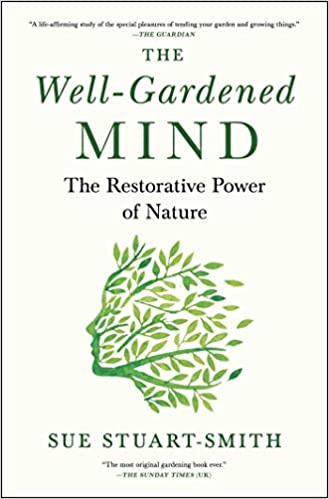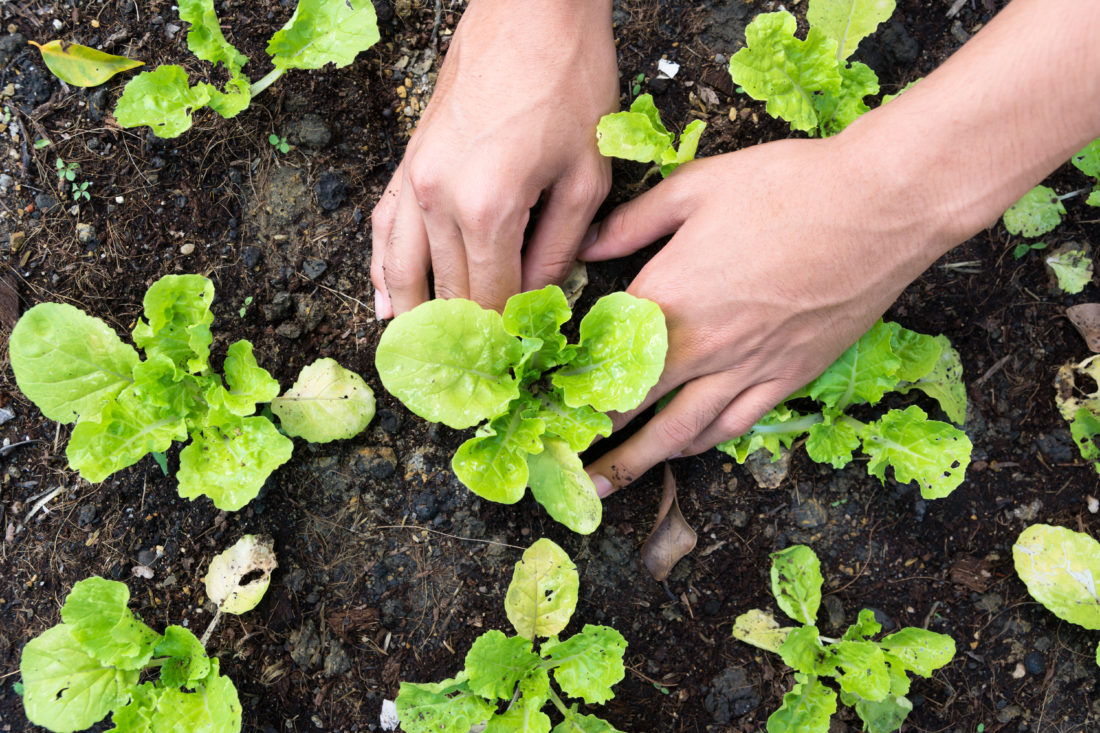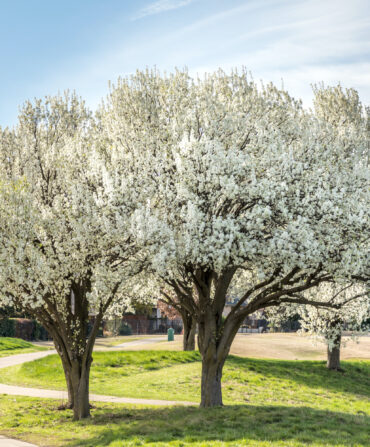I know firsthand that gardening is good for the soul. It’s been my escape these long months of the pandemic, every morning. Even after wasp stings sent me to the hospital in the spring, and everyone (my parents, my husband) told me not to go back out there, in nature, where anaphylactic shock loomed, I did so anyway. I just feel better if the day starts outside, away from screens, away from the news, checking to see what’s bloomed, what’s good in the world.

This feeling is a universal one. After all, sunshine and exercise have long been touted as healthful. But I had no idea just how good getting your hands in the dirt is for your mental health until I read Sue Stuart-Smith’s The Well-Gardened Mind. Stuart-Smith, a British psychiatrist and psychotherapist, who spent years working for the National Health Service, is also married to the acclaimed garden designer Tom Stuart-Smith, with whom she’s spent the last thirty years creating a jaw-droppingly beautiful garden in Hertfordshire.
Be warned, though: Her book isn’t filled with glossy photos of flowers. She instead writes from her professional perspective, as an expert on the human mind, and uses her garden (and many others) to illustrate various findings. And while I underlined nearly every sentence, here are six of my favorite take-aways.
Horticulture was used to treat PTSD in troops returning home from World War I.
I don’t know why this surprised me so much, but it did. Stuart-Smiths’s grandfather arrived home after months spent as a prisoner of war a broken man weighing just eighty pounds. Her grandmother nursed him back to physical health, but it was only after signing up in 1920 for a course in horticulture (offered to returning servicemen to help with their recovery) that he was able to find a sanctuary from trauma and his mental health began to recover. He remained an avid gardener for the rest of his life.
Weeding and other physically demanding garden work helps the brain process intense emotions such as anger, frustration, and extreme stress.
Which means those feelings, which are often pent up and remain unexpressed, are less likely to explode at home, at work, etc.
Gardening releases the same pain-relieving and calming brain chemicals that opioids do.
Beta-endorphins, often referred to as “nature’s opioids,” and oxytocin, the bonding hormone that enters the bloodstream when human beings hug, or when a mother holds an infant, both happen naturally in the garden.
Gardening teaches lessons in resilience, persistence, and patience.
I sort of knew this intrinsically, but Stuart-Smith explains it in scientific terms. Observing plants that do not survive, plans gone awry, and waiting years for trees to grow quite literally wires the brain and specific neuropathways to be more adaptable when faced with similar situations—death, change, loss—outside the garden.
Gardens that have both vistas and protected spaces satisfy our evolutionary need to live in places with open areas to scan for prospects as well as hideaways from threats and danger.
Many of my favorite landscapes incorporate the idea of creating garden “rooms,” with some that open up to the greater garden, and some designed to seal them off from the outer world, creating sanctuaries.
Tiny movements in the garden create enormous rewards in the mind.
That rush of excitement when tender sprouts emerge out of the soil from seed? That’s something we could all use right about now.








